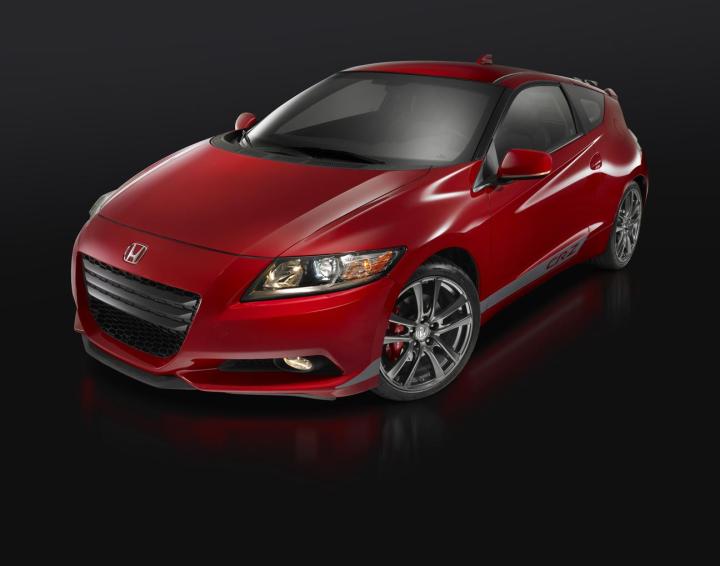
A blown CR-Z has been talked about for years, but the news still comes as a bit of a surprise because HPD has never offered a factory supercharger kit before. In fact, the tuning wing just expanded from motorsport to the ‘street performance’ market last year.
The HPD kit ramps the engine up to 197 horsepower (from 130), but Honda didn’t specify the new torque figures. The forced induction system includes high-flow injectors, an air-to-air intercooler, a revamped air filtration system, and a retuned ECU. It’ll run $5,495, not including dealer installation.
Other HPD performance options include a tuned exhaust, a responsive sport damper system, lowering springs, a limited slip diff, beefier brakes, and a sport clutch.
Related: Honda announced S660 ‘baby roadster’ for 2015 production
The boosted CR-Z will without a doubt be fun to drive, but there’s one glaring problem. Who is going to buy a supercharged hybrid from Honda?

I’ve been driving Hondas for years, and I’d be lying if I said 18-year old me wouldn’t drool over a factory supercharger option for my grocery getter. This just doesn’t seem like the right car for it.
The sport compact hasn’t been selling extremely well, and it wasn’t because it was too slow or uninspiring. It’s a hybrid Honda after all; buyers don’t go to the CR-Z looking for STI-like performance. No, the CR-Z’s sales have flopped because it’s a car that tries to do too many things (be fuel efficient, sporty, and cheap), but fails to do one particularly well.
Adding forced induction nearly eliminates an entire side of the equation (fuel efficiency and low cost) in order to enhance the other, less important side. My high school self would probably slap current me for saying this, but the supercharged hybrid just doesn’t make sense.
In fairness, the blower is a factory-installed option, not standard equipment. Our best hope is a similar kit finds its way to the Civic Si or possibly the upcoming S660.
Editors' Recommendations
- Honda recalls more than 300,000 vehicles over seat belt safety issue
- Toyota RAV4 vs. Honda CR-V: The differences and the similarities
- The Honda CR-V Hybrid is more important than you think
- Honda’s new hybrid Fit is here, but will it jazz up the firm’s American range?
- The Honda Passport: A more hardcore off-roader than you think


